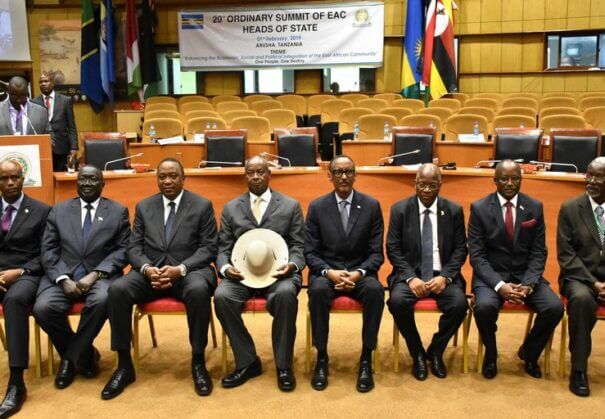
Our Projects are
Transforming African Trade
Quick Contacts
2nd Floor, Fidelity Insurance Centre Waiyaki Way, Westlands

THE East African Community (EAC) and the European Union (EU) are partnering to realize a fully-fledged EAC Custom Union as they launch a regional economic integration programme.
The EU Ambassador to Tanzania and the EAC, Mr Manfredo Fanti and the Secretary General of the EAC, Ambassador Libérat Mfumukeko launched a new Euro 16,400,000 joint programme that will strengthen regional economic integration, through advancing implementation of the Customs Union and Common Market Protocols.
The Common Objectives in Regional Economic Integration (CORE) programme will be instrumental in moving towards a fully-fledged Customs Union, by supporting more robust Information Communication and Technology (ICT) based on data exchange protocols for the clearing of goods.
The EAC Customs Union was established under the EAC Treaty. The EAC Customs Union Protocol was signed on March 2nd 2004 and became operational on 1st January 2005 with the passing of the EAC Customs Management Act.
The overall objective of the Customs Union is the formation of a single customs territory.
The aim of creating one single customs territory is to enable Partner States to enjoy economies of scale, with a view to supporting the process of economic development.
A needed critical change is to upgrade IT and leverage it to implement the SCT, particularly as concerns three functions: exchange of data between Partner States and with the EAC Secretariat for customs operational purposes, extraction of data from national customs systems for a systematic monitoring, and support functions with a regional component in risk management and valuation.
A well-developed and integrated services sector is important in shaping and driving the economic performance and overall development of the East African region.
Not only do services contribute significantly to the gross domestic product of the region – at approximately 45 per cent, but they also contribute significantly to employment, foreign direct investment and exports.
There is a growing recognition of the important role of services in the economies of EAC partner states.
Despite this and although notable progress has been made in some services sectors such as professional services and aspects of financial services, trade in services in the EAC has continued to face a number of barriers and challenges that prevent the region from fully reaping the benefits of a well-integrated services market.
Due to digital solutions, customs operations will be simpler, quicker, as well as safer during this pandemic situation resulting in a reduction of the costs of cross-border trade.
A new impetus will be given through this programme to promote free movement of services, a crucial building block for the creation of the EAC Common Market.
The CORE programme will support implementation of services’ liberalization commitments, facilitating mutual recognition of professions and allowing companies to provide their services beyond their national borders.
During the first two years, the focus of this programme will be on the insurance, accounting and distribution sectors. Additional sectors could be covered at a later stage.
The capacity of the EAC Secretariat will be enhanced in order to ensure that this institution can deliver its overall mandate.
“The economic integration of the East African Community is at the heart of our cooperation agenda. This programme will be a catalyst for making the economic integration a reality,” said Ambassador Fanti.
However, Ambassador Mfumukeko articulated the Community’s appreciation for the continuous support from the EU.
The financing agreement comes at the right time when the Community had just marked its 20th Anniversary, adding that the EU had made significant contribution to the achievements made by the EAC in all the four pillars of integration, namely the Customs Union, Common Market, Monetary Union and Political Federation.
“It is my sincere hope that the EAC cooperation with EU will grow stronger based on the already existing robust foundation of our common goals. The EU has for many years provided significant support to various EAC programmes in sectors as diverse as peace and security, promotion of democracy and good governance, and fisheries,” said Ambassador Mfumukeko.
The 60-month programme will be implemented by the EAC Secretariat and will complement several other initiatives to providing economic empowerment to the people of the EAC.
Read the original article
Disclaimer: The views and opinions expressed in this article are those of the authors and do not necessarily reflect the official policy or position of TradeMark Africa.